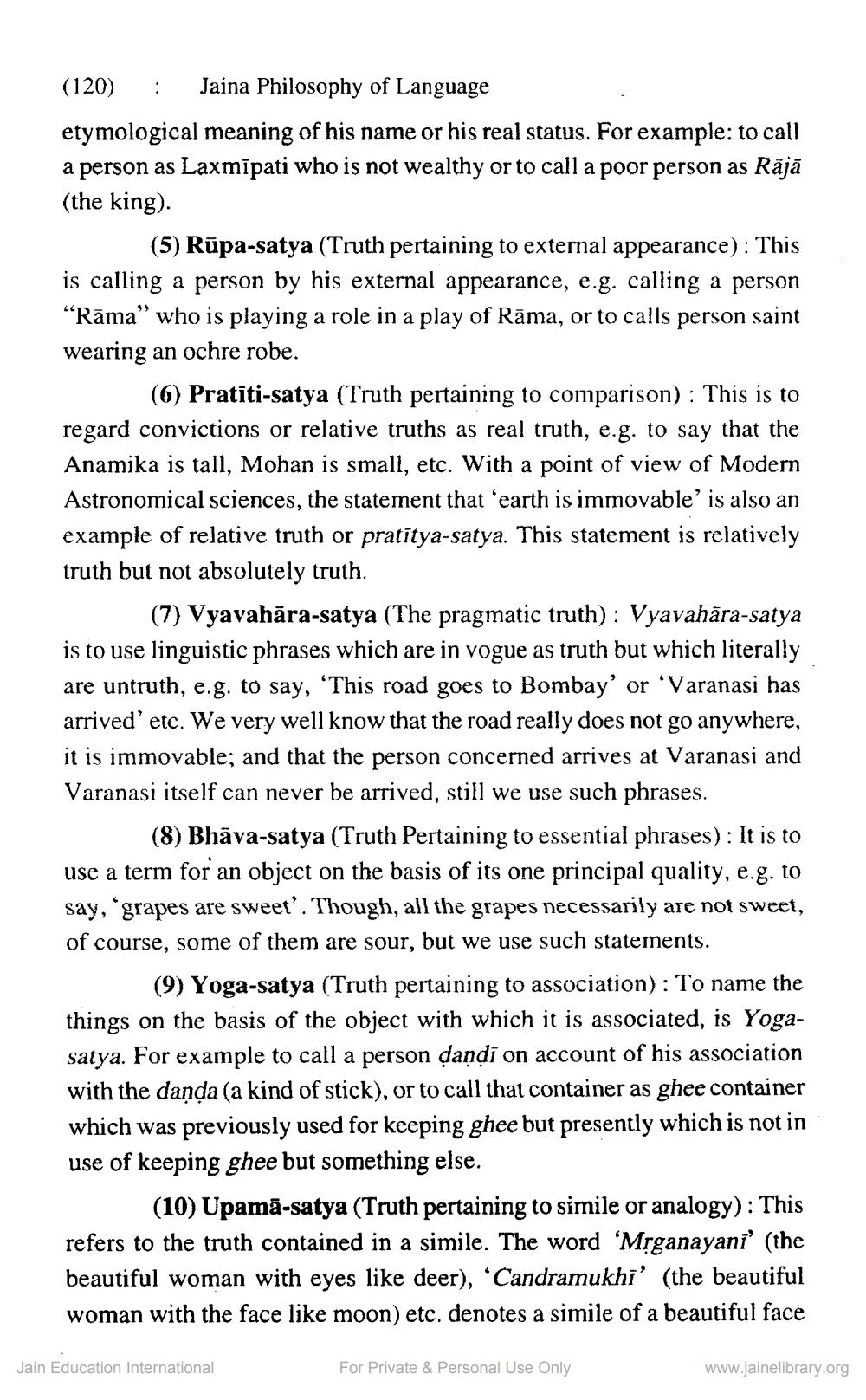________________
(120) : Jaina Philosophy of Language etymological meaning of his name or his real status. For example: to call a person as Laxmīpati who is not wealthy or to call a poor person as Rājā (the king).
(5) Rūpa-satya (Truth pertaining to external appearance): This is calling a person by his external appearance, e.g. calling a person “Rāma" who is playing a role in a play of Rāma, or to calls person saint wearing an ochre robe.
(6) Pratiti-satya (Truth pertaining to comparison) : This is to regard convictions or relative truths as real truth, e.g. to say that the Anamika is tall, Mohan is small, etc. With a point of view of Modern Astronomical sciences, the statement that earth is immovable' is also an example of relative truth or pratītya-satya. This statement is relatively truth but not absolutely truth.
(7) Vyavahāra-satya (The pragmatic truth): Vyavahāra-satya is to use linguistic phrases which are in vogue as truth but which literally are untruth, e.g. to say, 'This road goes to Bombay' or ‘Varanasi has arrived' etc. We very well know that the road really does not go anywhere, it is immovable; and that the person concerned arrives at Varanasi and Varanasi itself can never be arrived, still we use such phrases.
(8) Bhāva-satya (Truth Pertaining to essential phrases): It is to use a term for an object on the basis of its one principal quality, e.g. to say, 'grapes are sweet'. Though, all the grapes necessarily are not sweet, of course, some of them are sour, but we use such statements.
(9) Yoga-satya (Truth pertaining to association): To name the things on the basis of the object with which it is associated, is Yogasatya. For example to call a person dandi on account of his association with the danda (a kind of stick), or to call that container as ghee container which was previously used for keeping ghee but presently which is not in use of keeping ghee but something else.
(10) Upamā-satya (Truth pertaining to simile or analogy): This refers to the truth contained in a simile. The word 'Mrganayani' (the beautiful woman with eyes like deer), 'Candramukhi' (the beautiful woman with the face like moon) etc. denotes a simile of a beautiful face
Jain Education International
For Private & Personal Use Only
www.jainelibrary.org




